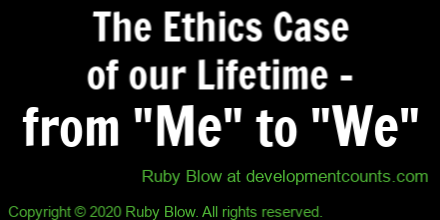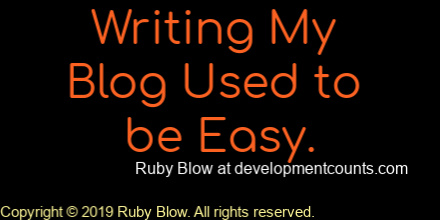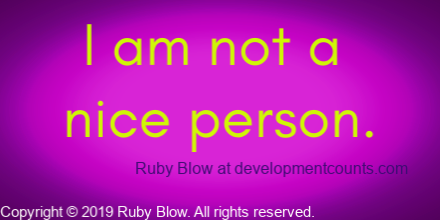What Does it Take to Repair a Fractured Relationship?
- Mutual commitment;
- Acknowledgment of the problems;
- An understanding of each person’s deeply held values;
- A willingness to be vulnerable;
- Sincere apologies;
- Forgiveness; and
- Possible reconciliation.
Mutual Commitment
One cannot repair what does not exist and we cannot force people to remain in any circumstance if it is not their choice to stay.
Whether a relationship is damaged because of betrayal, addiction, dishonesty, physical (verbal or emotional) abuse or even neglect, the underlying truth is that wanting to repair a relationship with someone does not mean that you can repair it alone. Repairing a relationship is contingent upon them wanting to repair it with you.
It is contingent upon their agreement that at the core of it all…they want you in their life. This is why relationships that don’t involve commitment are so difficult to repair. It is also why some people take their relationships for granted.
Commitment is a glue that supports security for those in relationship to one another. Commitment also represents an opportunity for some to test the limits and bounds of that commitment. In short they test, “Will you still love me if I do x, y or z?”
Acknowledgment of the Problem(s)
Sometimes people don’t know why their relationships are broken. Typically the involved parties have very different ideas about what happened and why.
As human beings we instinctively defend and guard ourselves against criticism. When someone tells us or shows us that they are hurt and it is intimated that something we said, did or didn’t do is the cause, then we can come up with all of the ways that the injured party’s statements are wrong.
In fact most arguments are about “what happened.” In order to repair a relationship it is not always necessary to understand what happened. Because you can rarely agree about “what happened” if you do not understand each other’s values.
Defensiveness can turn to aggression and aggression to even more damage that is difficult to repair.
An Understanding of Deeply Held Values
When someone violates what matters most to us, it is quite possible that they did not even know that they were doing any harm. In fact, it is when our deepest held values are violated…that we discover them ourselves.
A “deal breaker” occurs when something happens that we don’t think we can reconcile with our own identities. Often people in intense relationships set aside aspects of their identity to form the “we-ness” that is relationship. This is why it is quite normal for people to have great and even idealistic beginnings and then struggle when they begin to learn about all of their differences. Those differences challenge the status quo.
This applies to all types of relationships, even parent/child. If all goes well…the beginning is a “love fest.” Many parents want to go back to some stage when their child idealized them; wanted to please them and valued what the parent valued. But the very act of growing up means defining one’s own identity and one’s own values.
Part of being in relationship with anyone else is the “you, me, and the space in between; as well as the space that surrounds” the relationship.
To repair a relationship you have to allow what matters to that person to matter to you.
A Willingness to be Vulnerable
It is natural for people to be defensive when they are being criticized or when they feel that they are being criticized. When we are defensive…our walls go up.
When our walls go up…no one can get through. In turn, it is also difficult for us to get out. We can get stuck if we don’t allow ourselves to be vulnerable and let someone in to our inner world.
What is the raw, unvarnished truth of your pain?
Many people fear that if they express their pain that they will not recover from the pain itself.
In order to repair relationships we have to take a risk, we have to allow ourselves to be seen.
Sincere Apologies
Sometimes we just want people to “let it go.” But hold up…that is not how it works. Often people have difficulty accepting apologies because the apology may lack the weight that is equivalent to hurt that was caused.
Pain is heavy. It lingers. We cannot force others to get “over it.” Pain stands out in our minds like the vibrant events that caused pain. This is a biological imperative. Our ability to anticipate pain protects us from danger. When we let go of our pain…we are opening ourselves up to be close again and to risk hurt again.
This is why some people will accept an apology but still reject the relationship. The truth is sometimes you can’t fix it. Other times you can repair the relationship but it will take a lot of work. That work could include but is not limited to the following:
- Rebuilding trust;
- Stopping the offending behavior, words or actions; and
- Attending to what the other person says they need in order to feel whole.
Forgiveness
Forgiveness is a simple yet complex process. For many people it involves a spiritual mandate. In fact, some engage in forgiveness instinctively.
For many others, though, forgiveness is a process. If you are harboring resentment or anger toward someone, or someone is harboring resentment or anger toward you, it is a poisonous/toxic experience.
Many people harbor anger toward themselves. They have not forgiven themselves for a mistake or choice that harmed someone else or that put their own self in harm’s way. In these cases a person has put a wall up not so much to keep others out but to keep themselves in.
Folks who harbor deep anger toward themselves often struggle with depression. They believe that they are not worthy of love or closeness with others. They often have a pessimistic view of what value they bring to others. It is very difficult to maintain closeness with those who won’t forgive themselves. It is also a sign they will have difficulty forgiving you.
In order to repair relationships, both parties have to do forgiveness work. The work involves removing the barriers to your heart. This is why it is often said that forgiveness is something you do for yourself, not for someone else.
Possible Reconciliation
Often people want things to go “back to the way they used to be.” I think this is a mistake. Relationships exist in the present. The past influences the present. But all we have is now. What we have right now is “new” or at least it has an opportunity to be be new based on the relationship repair work.
In the present a person has a choice. Free of the obligations of the past each person has a choice about whether or not to stay committed to a relationship with another person, whether that person is family, friend, colleague, intimate partner or other.
As much as we don’t want others to leave us or to be left behind, not maintaining a relationship with someone is not as simple as being “left” or “leaving.” It is more about a mutual decision to move forward on a similar path or not.
In order to repair a relationship there must be truth. Truth is a prerequisite to reconciliation. Reconciliation is not an entitlement. At the root of some relationship violence is the idea that one can control another. We should not attempt to distort others’ free will.
Loving someone does not entitle you to their commitment.
Copyright © 2017 Ruby Blow. All rights reserved.
Share your thoughts on Linkedin, Facebook, Twitter or log in to one of your accounts below to comment. Subscribe to my YouTube channel.





